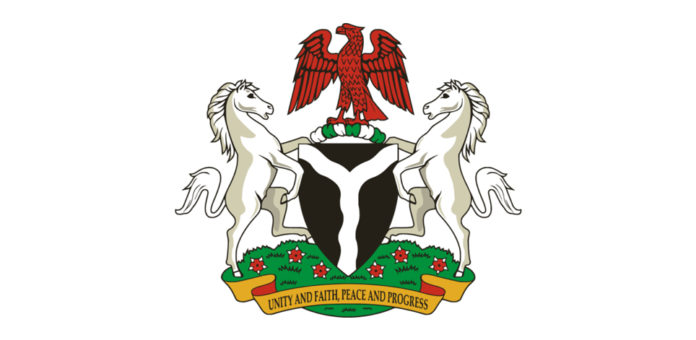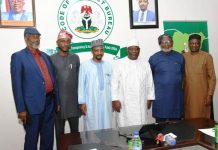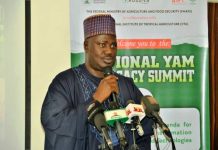In a significant move to reset leadership culture and restore order in the governance of Nigeria’s public institutions, the Bureau of Public Service Reforms (BPSR), in partnership with Germany’s Konrad Adenauer Stiftung (KAS), is set to train newly-appointed governing boards of federal parastatals, agencies, and commissions.
Below is the list of agencies invited for the induction programme:
Federal Roads Maintenance Agency (FERMA), National Health Insurance Authority (NHIA), Nigerian Education Loan Fund (NELFUND), Nigerian Investment Promotion Commission (NIPC), Nigerian Electricity Liability Management Company (NELMCO), Nigerian Maritime Administration and Safety Agency (NIMASA), Nigerian Ports Authority (NPA), Nigerian Export Promotion Council (NEPC), Nigerian Content Development and Monitoring Board (NCDMB), National Automobile Design and Development Council (NADDC), Central Bank of Nigeria (CBN), Nigerian Correctional Service (NCoS), Federal Inland Revenue Service (FIRS), Pension Transition Arrangement Directorate (PTAD), Nigerian Television Authority (NTA), National Agricultural Insurance Commission (NAIC), National Identity Management Commission (NIMC), Raw Material Research and Development Council (RMRDC), Federal Road Safety Corps (FRSC), Federal Radio Corporation of Nigeria (FRCN), Police Trust Fund (PTF), National Agency for the Control of Aids (NACA), and Nigerian Deposit Insurance Corporation (NDIC).
The high-level induction workshop, scheduled for early August in Abuja, will bring together over 50 participants, including board chairmen, chief executive officers, and senior members from six prominent federal bodies: the National Directorate of Employment (NDE), Institute for Peace and Conflict Resolution (IPCR), National Social Investment Trust Fund (NSITF), Competition and Consumer Protection Tribunal (CCPT), National Senior Citizens Centre (NSCC), and the National Broadcasting Commission (NBC).
But this is no ceremonial gathering. The two-day workshop, themed, “Strengthening the Capacity of CEOs, Chairmen and Members of the Board of Federal Parastatals, Agencies and Commissions on Organizational Effectiveness and Corporate Governance,” is designed as an urgent intervention.
Its purpose is to address long-standing governance breakdowns, misaligned responsibilities, and unhealthy tensions between boards and their executive management.
“This is not just another training; it’s a crucial intervention to prevent future leadership crises, ensure policy continuity, and foster synergy between agency boards and their executive management,” a senior BPSR official involved in the planning told PRNigeria.
Nigeria’s public institutions have for years grappled with structural dysfunction, power tussles, ethical lapses, unclear reporting lines, and rivalries between boards and CEOs that have stalled reforms and compromised service delivery.
By bringing both sides together in one room, the BPSR-KAS workshop aims to build a shared understanding of roles, ethical frameworks, communication principles, and strategic vision.
The training will expose participants to global best practices in corporate governance and public service ethics, with tailored modules to reflect the Nigerian administrative context.
For many of the agencies involved, it marks the first time their new boards and executive leadership will sit together to align priorities, clarify boundaries, and reflect on the responsibilities they now carry.
Stakeholders in the reform space have hailed the initiative as long overdue, describing it as a critical first step toward ending the policy gridlock and instability that often follow major board appointments.
“This is about resetting the tone from the top,” said another public policy expert familiar with the effort. “If boards and CEOs don’t understand one another or have conflicting mandates, it trickles down to the entire agency and stalls performance. This training can help prevent that.”
For BPSR, the workshop aligns with its broader mission to modernize public service and build a more responsive, transparent, and accountable government.
By partnering with KAS, a long-time collaborator on democratic governance and institutional reform in Nigeria, the Bureau is also signaling its intent to professionalize leadership culture at all levels.
Observers in the public sector see this induction as a quiet but necessary reset, one that, if institutionalized across all federal institutions, could begin to change how government works from the inside out.
At a time when Nigerians demand better results from public agencies, this is one reform that speaks directly to the roots of leadership failure, and offers a way out.
Signed
Aliyu Umar Aliyu
Head, Strategic Communications
10th July, 2025






